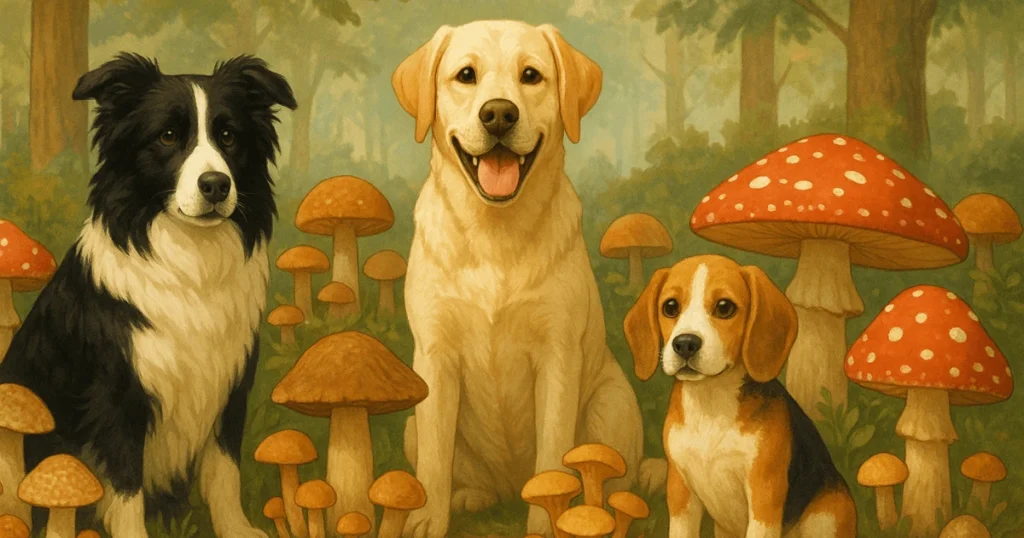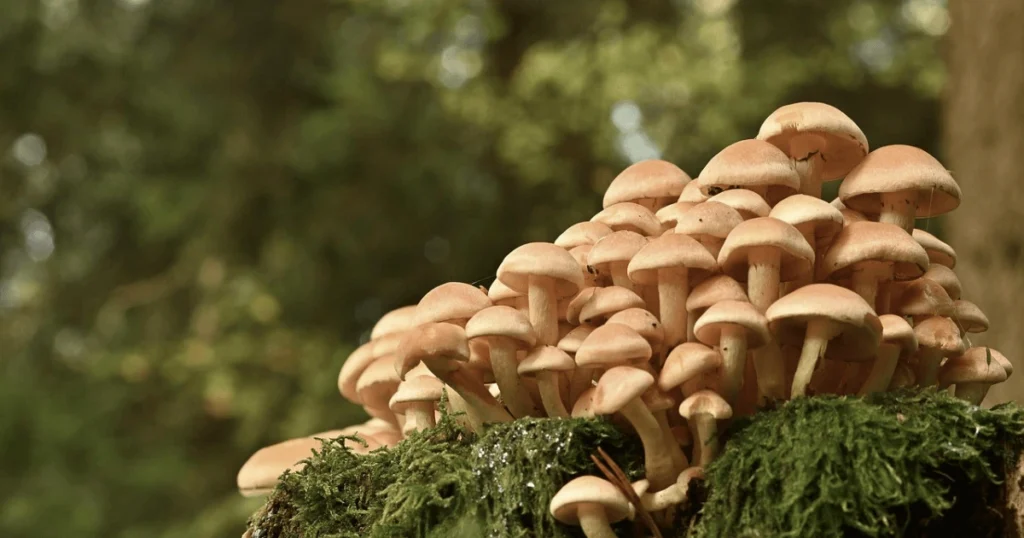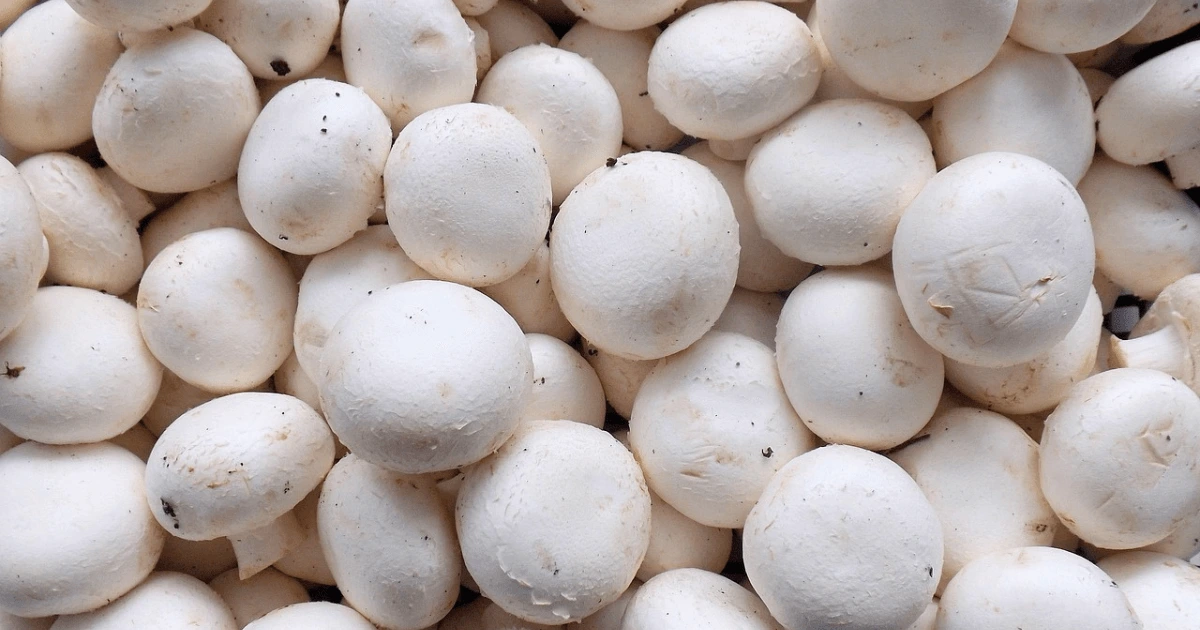Can Dogs Eat Mushrooms? The Truth Every Dog Owner Should Know
Table of Contents
Mushrooms & Mutt Myths
Can dogs eat mushrooms? It’s a question that’s confused pet parents for decades. They’re in your pasta, your stir-fry—and maybe even popping up uninvited in your backyard. But should mushrooms make it into your dog’s dinner bowl?
That question has dog owners split. Some swear by the health benefits of mushrooms, while others treat them like canine kryptonite. And truthfully? Both camps have a point. Because when it comes to mushrooms and dogs, the line between superfood and super dangerous is razor-thin.
Welcome to the wild world of fungi, where one bite can mean added nutrients—or an emergency vet visit. Let’s dig in.
Mushroom Safety 101: The Short Answer? It Depends
Can dogs safely eat mushrooms? The answer: it depends.
Some mushrooms—like the white button ones you toss into a stir-fry—are generally safe for dogs in small amounts when cooked and unseasoned. Others, especially wild varieties, can be wildly toxic. And the worst part? It’s often nearly impossible to tell the good from the deadly with the naked eye.
So what makes a mushroom safe or unsafe for dogs? Three key factors:
- Type: Edible (like portobello, shiitake) vs. toxic (like Amanita, Death Cap)
- Source: Store-bought and vet-approved? Or sprouting suspiciously in the wild?
- Preparation: Is it cooked plain—or sautéed in garlic, salt, or butter (a canine no-go)?
The bottom line? Some mushrooms can be safe for your dog—but only under very specific conditions. One wrong move, and a so-called treat can turn into a toxic threat.
Safe Mushrooms for Dogs: What’s on the Menu?
Can dogs eat mushrooms? Yes—but only if we’re talking about the right kind. Many pet parents wonder, “Can dogs have mushrooms at all?” The good news is that store-bought mushrooms—like white button, cremini, portobello, and shiitake—are generally safe when served correctly.
But let’s be clear: safe doesn’t mean sloppy. Are mushrooms bad for dogs? They can be—if you feed them raw, seasoned, or in large amounts. To keep your pup safe and satisfied, stick to cooked mushrooms with zero seasoning and serve them only as an occasional treat.
🍽️ Can Dogs Have Cooked Mushrooms?
Absolutely—dogs can have cooked mushrooms, as long as they’re prepared plain. No garlic, onions, butter, salt, or oil. Just steam, sauté (in water), or bake them, and let them cool. Cooking helps break down fibers that are tough for dogs to digest raw.
🍄 Why Some Mushrooms Are Safe:
Store-bought mushrooms can offer:
- Fiber and protein for digestion and strength
- B vitamins to support brain and nerve function
- Antioxidants and selenium to fight inflammation and disease
- Potassium to maintain healthy muscles and heart
Still asking yourself, “Are mushrooms toxic to dogs?” Not these ones—but moderation is key. Dogs don’t need mushrooms in their diet, so a little goes a long way.
🧪 Medicinal Mushrooms: A Vet-Approved Option
Certain varieties like reishi, maitake, shiitake, and turkey tail are found in immune-boosting pet supplements. But these are highly concentrated and should only be used under veterinary supervision.
🚨Important Reminder:
If your dog is eating mushrooms from the ground or backyard, stop them immediately. That’s a whole different story we’ll explore in the next section.
The Danger Zone: Wild Mushrooms
If you’ve ever caught your dog eating mushrooms in the yard or during a walk, do not ignore it. When it comes to wild mushrooms, the rules change fast—and the consequences can be deadly.
Are mushrooms toxic to dogs? Absolutely—many wild varieties are. In fact, wild mushrooms are among the most dangerous things your dog can eat. And here’s the kicker: even expert foragers struggle to tell safe fungi from toxic ones.
Some wild mushrooms can cause:
- Severe vomiting and diarrhea
- Tremors and seizures
- Liver or kidney failure
- Coma or death
And the scary part? Symptoms can show up fast—or take hours, lulling you into a false sense of security.
Common Toxic Culprits:
- Amanita phalloides (Death Cap)
- Galerina marginata
- Inocybe and Clitocybe species
These aren’t rare—they grow in parks, gardens, even sidewalks after rain. So if you’re wondering “Are mushrooms bad for dogs?”—wild ones are worse than bad. They’re potentially lethal.
If your dog is also munching on grass or plants, check out our guide on Dog Eating Grass and What It Means.
Serving Rules: How to Safely Feed Mushrooms to Dogs

By now, you know that not all mushrooms are off-limits. But even the safe ones come with strings attached. So before you toss a slice into your pup’s bowl, here’s how to do it the right way.
✅ Can Dogs Have Cooked Mushrooms?
Yes—dogs can have cooked mushrooms, but only if they’re plain. That means:
- No salt, garlic, or onions
- No butter, oil, or seasoning
- No creamy sauces or stir-fry leftovers
Cooking mushrooms helps break down their tough cell walls, making them easier for dogs to digest. Just make sure you let them cool first. Dogs don’t do well with steaming-hot food or spicy toppings.
🚫 Avoid Raw Mushrooms
Even store-bought mushrooms can be hard on your dog’s stomach when raw. They may cause gas, bloating, or diarrhea—especially in sensitive pups. If you’re asking, “Are mushrooms bad for dogs when raw?”—for many, the answer is yes.
Go Slow: Watch for Reactions
Every dog is different. When introducing mushrooms for the first time:
- Start with a tiny, cooked piece
- Monitor for vomiting, diarrhea, or itchiness
- If your dog has a sensitive tummy, skip mushrooms altogether
Remember: Less is More
Even when mushrooms are safe, they shouldn’t be a diet staple. Think of them like dog treats—not dog food. A few cooked pieces every now and then? Fine. A daily mushroom buffet? That’s asking for trouble.
Bottom line: If you want to let your dog try mushrooms, keep it plain, keep it cooked, and keep it small. When in doubt? Ask your vet. Always.
What If Your Dog Eats a Wild Mushroom?

Picture this: You glance over and catch your dog eating mushrooms off the grass. Your heart skips a beat—and rightly so.
Are mushrooms toxic to dogs? Many wild ones absolutely are. And when it comes to mushroom poisoning, every second counts.
🐾 Here’s Exactly What to Do:
- Get to the vet immediately.
Even if your dog seems normal, toxic mushrooms can take hours to unleash damage internally. Don’t wait for symptoms to appear—by then, it might be too late. - Grab a sample (safely).
Use gloves or a plastic bag to collect the mushroom your dog ate. This can help the vet (or a mycologist) identify the species and decide on treatment. - Skip home remedies.
Do not induce vomiting or try DIY treatments unless a vet specifically tells you to. Some mushroom toxins can cause more harm on the way back up. - Watch for symptoms—but don’t wait for them.
Symptoms of mushroom poisoning in dogs include:- Vomiting or diarrhea
- Excessive drooling
- Staggering or tremors
- Yellow eyes or gums (liver failure)
- Seizures or collapse
🕒 The Golden Rule: Act Fast
Some toxins act within minutes. Others take 6–12 hours to show signs, fooling pet owners into a false sense of calm. Early action can save your dog’s life.
So if you’re unsure what kind of mushroom your dog just scarfed down? Treat it as an emergency. Always.
| Type of Mushroom | Safe for Dogs? | Notes |
|---|---|---|
| Store-bought, cooked plain | Generally safe (in moderation) | No oils, salt, garlic, onions, or seasonings |
| Store-bought, raw | Not recommended | Harder to digest, may cause stomach upset |
| Wild mushrooms | Extremely dangerous | Can be fatal; urgent vet care needed |
| Cooked with seasonings | Unsafe | Garlic, onions, salt, butter, and oil are toxic |
This table offers a fast, clear answer to the age-old question: can dogs have mushrooms safely? Keep it handy, share it widely, and save some tails.
FAQ: Mushrooms and Dogs
Can dogs have mushrooms raw?
Raw mushrooms, even store-bought ones, are tough for dogs to digest and can cause upset stomachs. It’s best to serve mushrooms cooked and plain.
Are mushrooms bad for dogs?
It depends. Store-bought, cooked mushrooms in moderation are generally safe. Wild mushrooms, however, are often toxic and can be deadly.
Are mushrooms toxic to dogs?
Yes, many wild mushrooms contain toxins dangerous to dogs. If your dog eats any wild mushrooms, seek veterinary care immediately.
Can dogs have cooked mushrooms every day?
No. Even safe mushrooms should be occasional treats, not daily diet staples.
What should I do if my dog is eating mushrooms outside?
Stop them immediately and remove access. If you suspect wild mushroom ingestion, go to the vet immediately, even if symptoms aren’t visible.
Final Bark: The Verdict on Can Dogs Eat Mushrooms
So, can dogs eat mushrooms? The answer is nuanced but clear:
Yes, dogs can have some mushrooms—but only the right ones, prepared properly, and given sparingly.
Store-bought mushrooms like white button, cremini, and shiitake, when cooked plain and unseasoned, are generally safe and can even offer mild health benefits. However, wild mushrooms are a strict no-go—they’re often toxic and can cause serious illness or death.
If your dog is ever caught eating mushrooms outside, treat it as an emergency. Quick veterinary action can save lives.
Bottom line? Mushrooms are a treat, not a staple. When in doubt, always err on the side of caution—and consult your vet before introducing any new foods.
Stay safe, stay informed, and keep those tails wagging!

